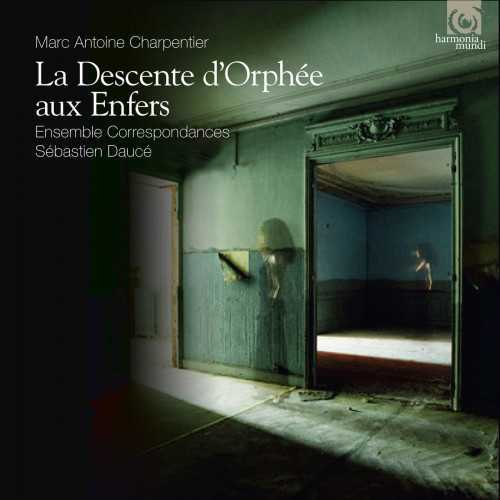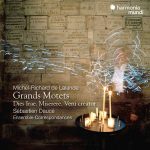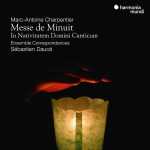
Composer: Marc-Antoine Charpentier
Performer: Ensemble Correspondances
Conductor: Sébastien Daucé
Audio CD
Number of Discs: 1
Format: FLAC (tracks)
Label: Harmonia Mundi
Size: 543 MB
Recovery: +3%
Scan: yes
La Descente d’Orphée aux Enfers, H. 488, Premier Acte
01. Ouverture
02. Scène 1: Inventons mille jeux divers
03. Scène 1: Compagnes fidèles
04. Scène 1: Soutiens-moi, chère Œnone
05. Scène 2: Ah ! Bergers, c’en est fait
06. Scène 2: Entrée de Nymphes et de Bergers désespérés
07. Scène 2: Lâche amant
08. Scène 3: Ne tourne point, mon fils
09. Scène 3: Que d’un frivole espoir
La Descente d’Orphée aux Enfers, H. 488, Second Acte, L’Enfer
10. Scène 1: Affreux tourments
11. Scène 2: Cessez, cessez fameux coupables
12. Scène 2: Quelle touchante voix
13. Scène 2: Je ne refuse point
14. Scène 2: Il n’est rien aux Enfers
15. Scène 2: Entrée des Fantômes
16. Scène 3: Que cherche en mon palais
17. Scène 3: Je ne viens point ici
18. Scène 3: Pauvre amant
19. Scène 3: Eurydice n’est plus
20. Scène 3: Le destin est contraire
21. Scène 3: Tu ne la perdras point
22. Scène 3: Quel charme impérieux
23. Scène 3: Souviens-toi du larcin
24. Scène 3: Je cède, je me rends
25. Scène 4: Vous partez donc
26. Scène 4: Entrée des Fantômes
Robert Getchell (Orphée),
Caroline Weynants (Eurydice),
Caroline Dangin-Bardot (Oenone),
Violaine Le Chenadec (Daphné),
Caroline Arud (Aréthuse),
Lucile Richardot (Proserpine),
Stephen Collardelle (Ixion),
Davy Cornillot (Tantale),
Étienne Bazola (Apollon/Titye),
Nicolas Brooymans (Pluton)
Ensemble Correspondances,
Sébastien Daucé
‘La Descente d’Orphée aux Enfers’, Charpentier’s last short opera, was written for his patron Mademoiselle de Guise [Marie de Lorraine, Duchesse de Guise, Duchesse de Joyeuse, Princesse de Joinville, 1615-88] and constitutes in its breadth and dramatic density a little gem of 17th-century French vocal art.
Charpentier made use of all 10 singers employed by Mademoiselle de Guise at the time, using the Orpheus’ myth, albeit one left in suspension, without a resolution; a carefree and happy ‘descent’ that celebrates Orpheus’ song and the enchanting power of music. Charpentier was one of the first French composers to use this story in its full dimensions. He had already produced a short divertissement called ‘Orphée descendant aux Enfers’, which may be regarded as the earliest example of the French cantata, a miniature vocal genre that flourished in aristocratic gatherings of the early 18th century. Conceived on a larger scale, ‘La Descente d’Orphée aux Enfers’ unfolds over two acts. The first installs the listener in the bucolic universe typical of the pastorale, peopled by nymphs led by Daphne, Arethusa and OEnone, who have come to celebrate the wedding of their companion Eurydice with the shepherd Orpheus. Eurydice is mortally wounded by a serpent and her sudden death leaves her companions and Orpheus distraught and tearful. The longer Act Two traces Orpheus’ difficult quest through the Underworld, where he charms first of all the damned souls, then Proserpina and Pluto, with his songs in the hope of bringing Eurydice back with him. He is finally allowed to leave with Eurydice, though warned that he must not meet her gaze until he has seen the light of day once more; otherwise, he will have to abandon her to the realm of the dead for ever. Charpentier’s manuscript stops at this point, as Orpheus commences his journey back to the light, leaving the denizens of the Underworld in despair at his departure.
A poetic experience amid the depths of night, which inspired Sébastien Daucé and his Ensemble Correspondances in this new edition, recorded in Grenoble in January last year.



